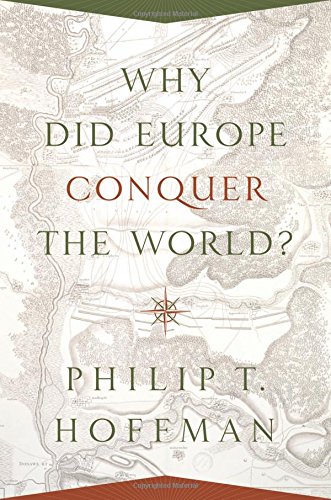

Most ebook files are in PDF format, so you can easily read them using various software such as Foxit Reader or directly on the Google Chrome browser.
Some ebook files are released by publishers in other formats such as .awz, .mobi, .epub, .fb2, etc. You may need to install specific software to read these formats on mobile/PC, such as Calibre.
Please read the tutorial at this link: https://ebookbell.com/faq
We offer FREE conversion to the popular formats you request; however, this may take some time. Therefore, right after payment, please email us, and we will try to provide the service as quickly as possible.
For some exceptional file formats or broken links (if any), please refrain from opening any disputes. Instead, email us first, and we will try to assist within a maximum of 6 hours.
EbookBell Team

4.8
104 reviewsBetween 1492 and 1914, Europeans conquered 84 percent of the globe. But why did Europe rise to the top, when for centuries the Chinese, Japanese, Ottomans, and South Asians were far more advanced? Why didn't these powers establish global dominance? In Why Did Europe Conquer the World?, distinguished economic historian Philip Hoffman demonstrates that conventional explanations--such as geography, epidemic disease, and the Industrial Revolution--fail to provide answers. Arguing instead for the pivotal role of economic and political history, Hoffman shows that if variables had been at all different, Europe would not have achieved critical military innovations, and another power could have become master of the world.
In vivid detail, Hoffman sheds light on the two millennia of economic, political, and historical changes that set European states on a distinctive path of development and military rivalry. Compared to their counterparts in China, Japan, South Asia, and the Middle East, European leaders--whether chiefs, lords, kings, emperors, or prime ministers--had radically different incentives, which drove them to make war. These incentives, which Hoffman explores using an economic model of political costs and financial resources, resulted in astonishingly rapid growth in Europe's military sector from the Middle Ages on, and produced an insurmountable lead in gunpowder technology. The consequences determined which states established colonial empires or ran the slave trade, and even which economies were the first to industrialize.
Debunking traditional arguments, Why Did Europe Conquer the World? reveals the startling reasons behind Europe's historic global supremacy.